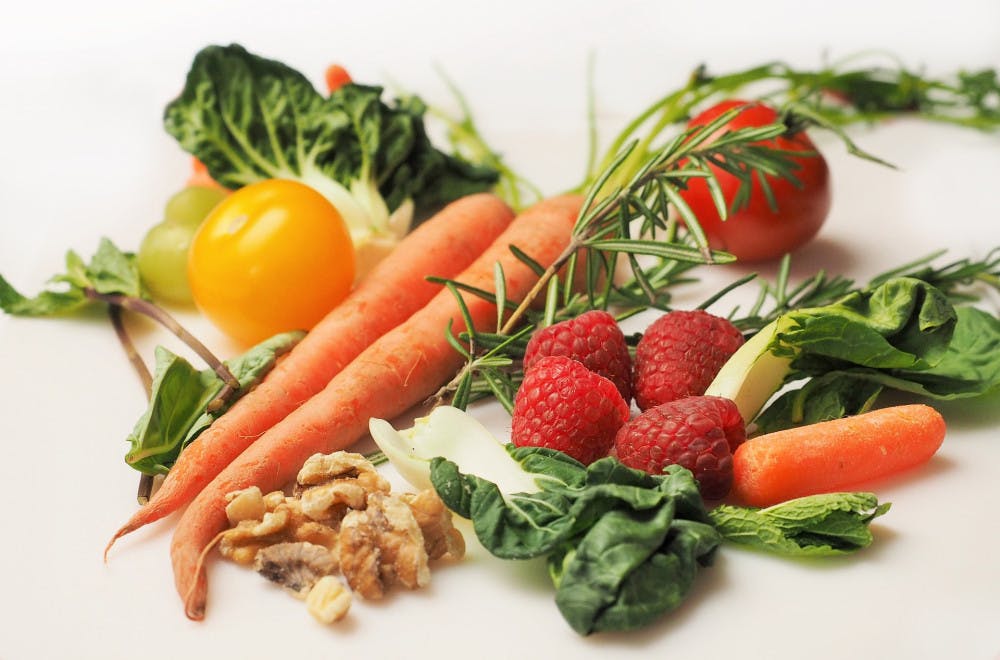By: Taylor McCann
At some point in our lives, we have all been motivated, either by ourselves or others, to make healthier eating choices. In doing this, we share a common goal: to improve our well-being and live fuller, longer and healthier lives. When making these efforts, however, we typically don’t stop to think about the environmental consequences of our eating habits. It’s time to reconsider what’s on our plates for our health and for the health of our environment because after all, our diets and environmental outcomes go hand-in-hand. A study published in 2016 by Proceedings of the National Academy of Sciences of the United States of America (PNAS) dove deeper into this relationship. They used a reference scenario created by the Food and Agriculture Organization of the United Nations for the year 2050 to analyze the environmental and health impacts of our diets. The study found that “The food system is responsible for more than a quarter of all greenhouse gas emissions while unhealthy diets and high body weight are among the greatest contributors to premature mortality.” The study notes that the majority of the food system’s greenhouse gas emissions, 80 percent actually, are a result of livestock production. The research conducted comes among popular environmental concerns about the role of livestock in greenhouse gas emissions. From a health standpoint, diets with high consumption of red meats paired with low consumption of fruits and vegetables contributes to increased early mortality rates. This second body of new research from PNAS, published in October 2019, warns of higher risks for diseases like diabetes, coronary heart disease and colorectal cancer for those who follow this type of diet. Does this mean we should stop eating meat? Not necessarily. Stopping the consumption of meat altogether cuts out a big food group in most of our diets and is not a realistic choice for everyone when it comes to the cost of searching for alternatives. Rather, slowly transitioning towards a more plant-based diet is predicted by the researchers to “reduce global mortality by 6–10% and food-related greenhouse gas emissions by 29–70%.” This collective effort could help reduce both land use pressures and greenhouse gas emissions.The 2019 study by PNAS compared five environmental outcomes, like scarcity-weighted water use and eutrophication, and five health outcomes, like type II diabetes and stroke, against 15 different food groups. The study found that plant-sourced foods like olive oil and beverages sweetened with sugar have the lowest environmental impacts. In sharp contrast, producing just one serving of processed red meat “has the second highest mean impact on acidification, GHG emissions, and land use and the third highest mean impact for eutrophication.” The researchers also produced a radar plot, a visual that helps give a better understanding of the impact certain food groups have on our health and the environment, to show the rank-ordered health and environmental impacts per serving of food consumed per day. In conclusion, this recent study found that increased consumption of foods in your diet that are associated with low disease risks, like fruits and vegetables, will also reduce diet-related environmental impacts. Although foods like refined grain cereals, dairy, eggs, and chicken have different nutrient profiles and benefits, consuming them can still lead to the achievement of health or environmental goals. In other words, the trick is picking foods with better nutritional value or less of an environmental impact, an example shown through the replacement of processed meat with unprocessed red meat and poultry.Here are some recommendations and swaps you can make in your diet to improve your health and combat the negative environmental outcomes associated with them:- Don’t remove all red meat from your diet. Simply cut back on the portions you are consuming everyday by one-half or one-fourth.
- Incorporate protein-rich foods besides red meat into your diet, like edamame, seeds, nuts and nut butters.
- Focusing on a slow transition to a plant-based diet will ensure more personal success than cutting out red meat and other animal products all at once!
Cover photo courtesy of Pixabay

